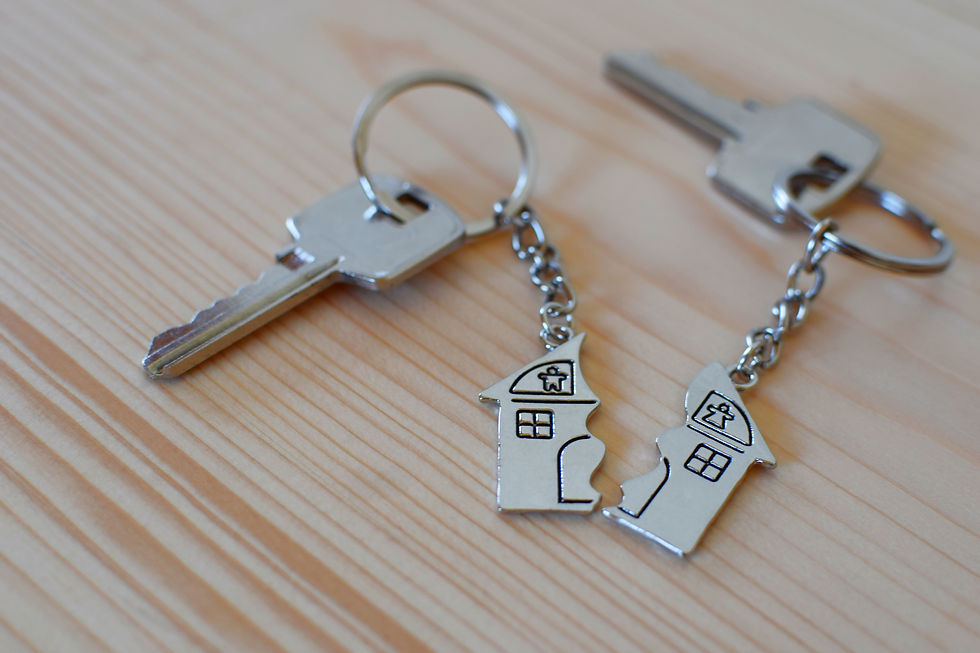
Thousands of people get divorced each year, and the experience is unique for every single one. Going through a divorce is personal and can cause a lot of emotional turmoil, even when things end amicably. It’s easy to stay focused on things like court dates and splitting up assets. However, most people don’t think about what life looks like after divorce until they’re faced with that new reality. Preparing yourself for that new lifestyle ahead of time can make it easier to cope and adjust. It’s a new chapter of your life, but the last thing you want is to feel like it’s creeping up on you from out of nowhere.
So, what does life look like after divorce?
Getting Used to a Single Income
Perhaps the biggest change you’ll have to face right away is a difference in your financial situation. You could be going from a two-income household to a single-income immediately. Or, if your spouse was the breadwinner and you stayed home, it might be the first time you have to think about joining the workforce in a very long time. You might have to create a budget, cut back on expenses, or even adopt a completely different lifestyle from the one you’ve gotten used to throughout your marriage. Either way, in today’s economy, having to worry about money on top of everything else can be overwhelming.
Different Living Arrangements
It’s not uncommon for women to “keep” the marital home in a divorce. While that can provide some comfort and familiarity, especially if you have kids, it doesn’t mean things are easy. It can be difficult to adjust to living alone. You undoubtedly have many memories in that home—good and bad. They won’t disappear overnight, so even if you’re comfortable in your own home, you might be dealing with pain from your relationship. You can make the experience easier on yourself by rearranging furniture or redecorating. Sometimes, something as simple as painting the walls a different color can make a big difference and make the home feel more like yours.
Loneliness and Moving On
Even if things weren’t great between you and your spouse, living alone and not in a relationship is very different. When you’re married for a long time, it’s easy to assume a “unit” identity. You might not even remember what your life looked like before you and your partner got together. It takes time to find yourself again. It takes time to rediscover the things you like or to find new hobbies. Establishing a new identity after so long can be overwhelming, but you don’t have to do it on your own.
One of the best things you can do after a divorce is to lean on your support system. Your friends and family will be there to provide a listening ear and actionable advice. Eventually, you might even think about connecting with someone new. But don’t let anyone push you into a relationship. There’s no ideal timeline for dating after a divorce. It’s about knowing when you’re ready and feeling comfortable in your own skin.
Managing Your Mental Health
If you’re dealing with stress, anxiety, or feelings of depression after a divorce, you’re not alone. However, you don’t need to struggle with those feelings forever. It’s not uncommon, but it also doesn’t have to be permanent.
Feel free to contact me to set up an appointment. Sometimes, simply talking to a mental health professional can make a big difference in helping you discover the root of your anxiety or depression. Most importantly, together, we’ll work through effective ways of managing your symptoms.

Jennifer Perera is a mom of two boys, a spouse and a Licensed Clinical Social Worker. She is also Certified as a Perinatal Mental Health Professional by Postpartum Support International. She has a private practice in Springfield, New Jersey and also sees clients throughout New Jersey via telehealth. Her passion is helping new moms and dads find their joy again in parenthood through individual and couples counseling. She also runs workshops for new parents, teaching them techniques and strategies to help them have a stronger relationship - built to thrive during the parenthood years. Jennifer specializes in working with parents during the prenatal and postpartum periods and those coping with grief or loss issues surrounding pregnancy.

Comments